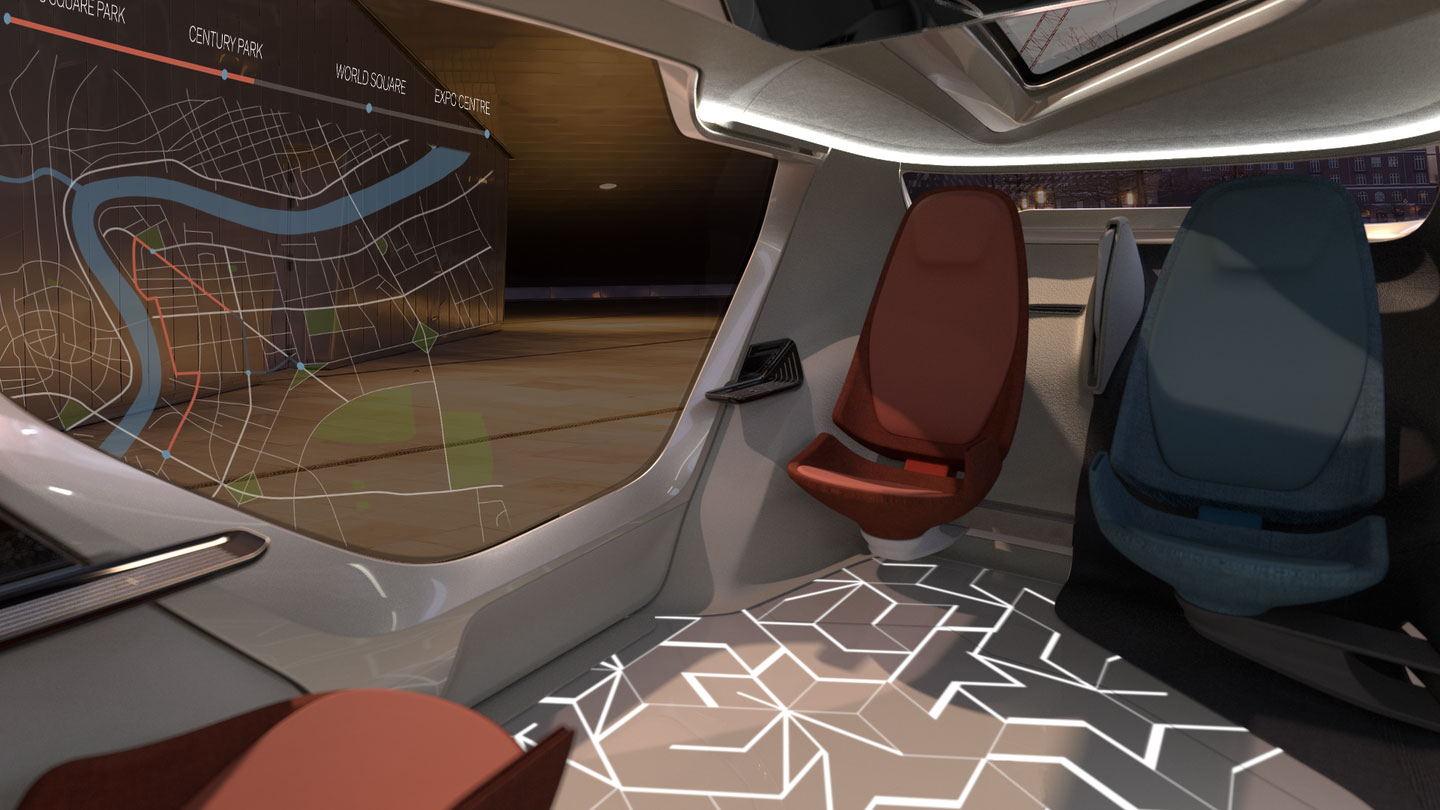If we didn't have steering wheels, would cars look radically different?
InMotion has created an interesting take on our driverless futures

Screw driverless cars, they're so 2016. The future is apparently those that are also ownerless... and wheelless too (steering wheels, that is).
That's the concept for a car unveiled at CES Asia. It’s definitely a moonshot concept, but it’s exciting to see what the future of road travel could look like.
The InMotion driverless car is the brainchild of NEVS, a Swedish electrical vehicle manufacturer that was founded in 2012 and has its sights set firmly on the future.
The concept for the car is for a 'level five' autonomous vehicle. There are five different levels when it comes to driverless automobiles, ranging from zero, where the vehicle can offer warnings but has no control of the vehicle, to five, where there is no wheel, and therefore the vehicle is in complete control of itself.
Look ma, no wheel!
Not needing a steering wheel creates interesting opportunities in the car; at the moment automobile design is based almost entirely on the necessity of the driver to be able to best control the vehicle.
Once that goes out of the window, the rules for where things need to be in the car get completely re-written.
NEVS has really run with this concept, turning InMotion into what is effectively a room on wheels (or not). The chairs inside the vehicle can be set to different modes: Private, Social, and Meeting. All the chairs can be faced into the vehicle, meaning you could have a meeting while riding the InMotion.
Get daily insight, inspiration and deals in your inbox
Sign up for breaking news, reviews, opinion, top tech deals, and more.
The windows can serve as screens, and there will be wireless charging, customisable lighting, and temperature controls.
What gets really interesting is who actually owns the InMotion. The concept is that consumers won’t actually own one of these vehicles themselves, that you will hire one for the duration of your journey, and then the vehicle moves on to the next user.
This will mean that the amount of space taken up in cities by parking can be reclaimed and turned back into green spaces and human centric spaces, making cities greener, happier, healthier places to live.
- Wondering what this bright future will mean for people who like driving? Check out the latest instalment of our regular feature The Transporter: In a world of driverless cars the racetrack will be a driver's oasis
Andrew London is a writer at Velocity Partners. Prior to Velocity Partners, he was a staff writer at Future plc.
